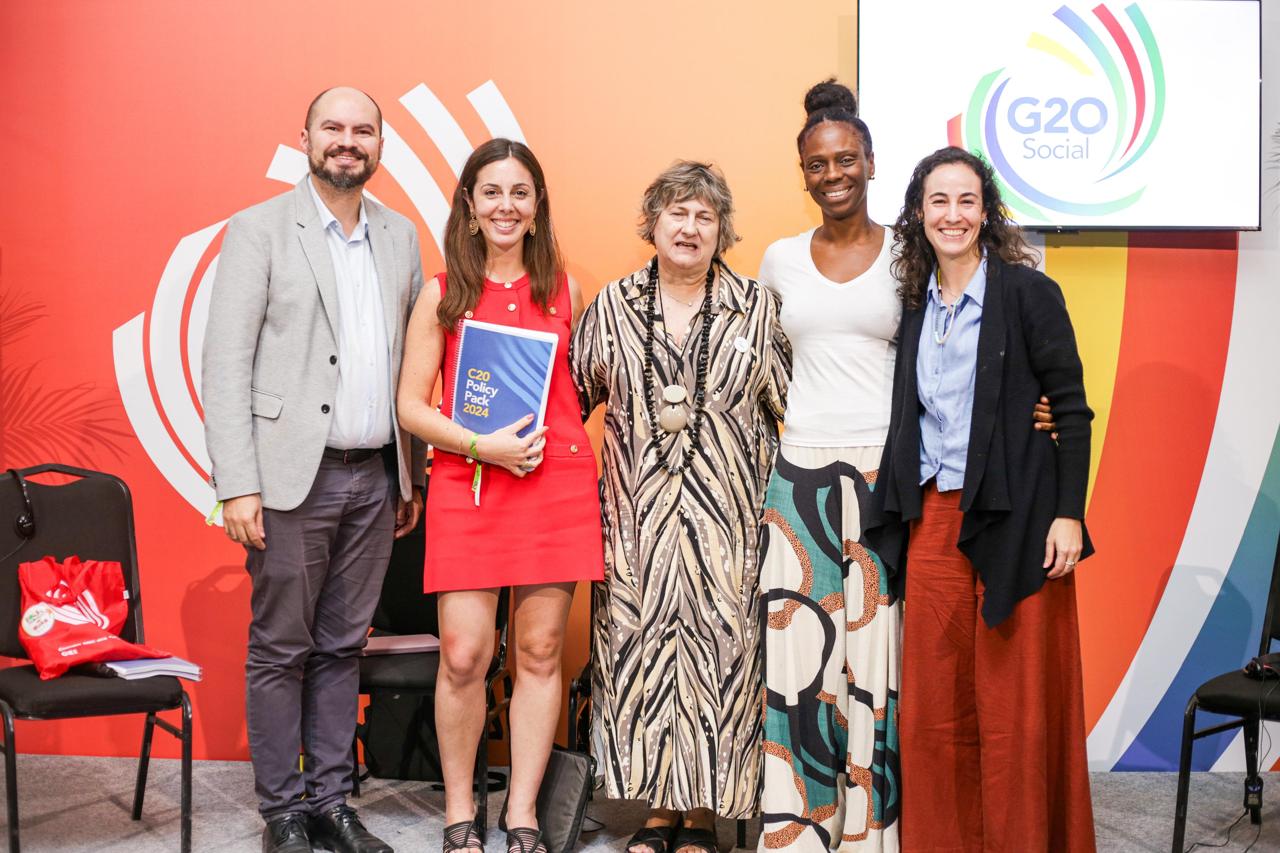
G20 Social Summit Rio de Janeiro Takeaways
We participated in the G20 Social Summit in Rio de Janeiro from 13 to 16 November, where numerous activities occurred before the final Summit and the adoption of the Leaders' Declaration on 18 and 19 November.
The Summit was essential for gathering various stakeholders working on the G20 meetings throughout the year after an impressive participatory process initiated by the Brazilian presidency.
We were part of an event organised with INESC, Latindadd, the Initiative for Human Rights Principles in Fiscal Policy, and ABONG regarding the relevance of the UN Tax Convention for the progressive realisation of human rights. We exposed the relationship between the financing of public services—including healthcare and education—and tax reform. We presented data on income inequality in Latin America and Africa and highlighted the constraints posed by the financing gap in public healthcare and education in both regions.
During the social Summit, we also participated in several civil society strategy meetings, including an event by CIPPEC, IDRC, Oxfam, UN Women, the government of Brazil, and others on building societies of care at the G20, in which there was an in-depth discussion about the links between care and economic policy, as well as the links between care and environmental justice.
We joined an exploratory meeting to organise a feminist contribution to the fiscal discussions in the region. In the same vein, we took part in a strategy meeting of the consultative council of the PTLAC regarding our balance of the G20, priorities for the United Nations Convention on Tax Cooperation, and other internal business. This was a vibrant gathering and discussion space, as the organisations usually meet only virtually.
The Summit was also a space that provided moments of dialogue with African civil society and shared lessons learned to be considered for the next G20 presidency, which will be held by South Africa.
G20 Rio de Janeiro Leaders' Declaration
After threats of blockage on numerous issues, the final Declaration of the G20 was released on 18 November as one of the most progressive positions ever adopted at this forum, centred on reducing inequalities within and between countries.
The Heads of State recognised significant socio-economic, climate, and environmental challenges and crises which required urgent action. They endorsed the Rio de Janeiro G20 Ministerial Declaration on International Tax Cooperation, adopted at the Finance Track after debates with unprecedented civil society participation. Recognising that progressive taxation is one of the key tools to reduce domestic inequalities, strengthen fiscal sustainability, foster budget consolidation, promote strong, sustainable, balanced, and inclusive growth, and facilitate the achievement of the SDGs, the Leaders applauded domestic tax reforms carried out by several G20 members. They further committed to "engage cooperatively to ensure that ultra-high-net-worth individuals are effectively taxed." Though the UN Tax Convention was not explicitly mentioned in this declaration, it had previously been recognised in the Ministerial agreement as an "opportunity to promote inclusive and effective international tax cooperation".
On other essential topics, the G20 leaders pledged to "remain committed to building more resilient, equitable, sustainable, and inclusive health systems for the provision of integrated people-centered health services, including mental health, and to achieve Universal Health Coverage, focusing on improving essential health services and health systems to better than pre-pandemic levels in the next one to two years." It's also worth highlighting their commitment to promoting "gender equality in paid and unpaid care work to ensure equal, full and meaningful participation of women in the economy, by promoting social and gender co-responsibility, encouraging and facilitating men's and boys' equal involvement in care work and challenging gender norms that prevent equitable distribution and redistribution of caregiving responsibilities," and to strengthen their efforts to fulfill the implementation of the Beijing Declaration and Platform for Action at its 30th anniversary.
These results would hardly be possible without active and constant engagement by Brazilian and international civil society organisations and social movements throughout the year, a level of participation that we expect will be repeated in South Africa in 2025.





